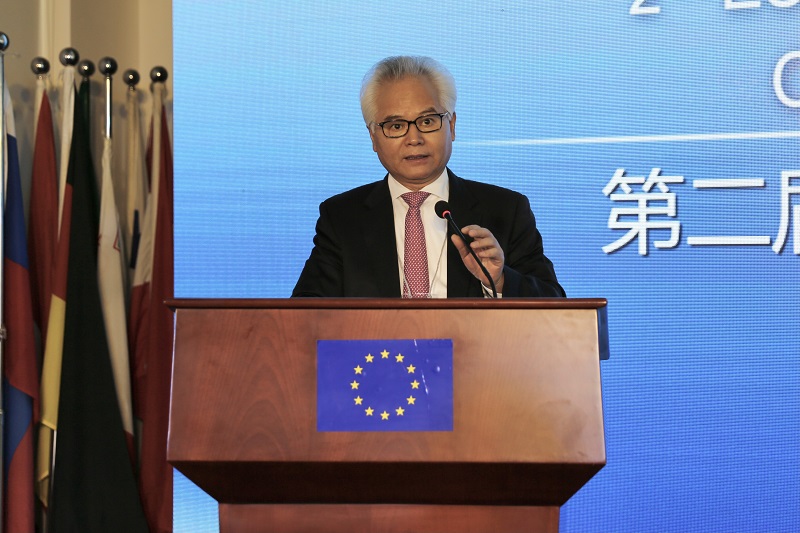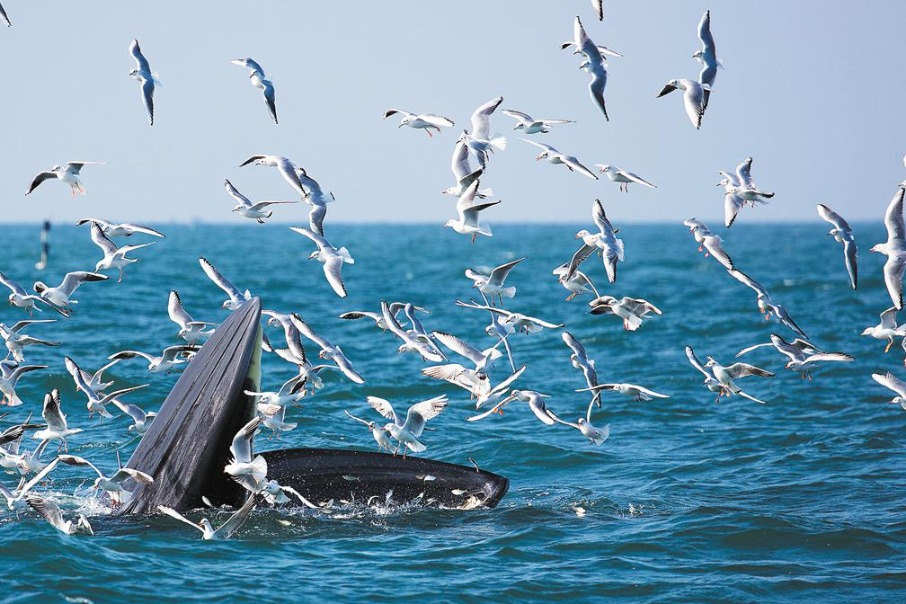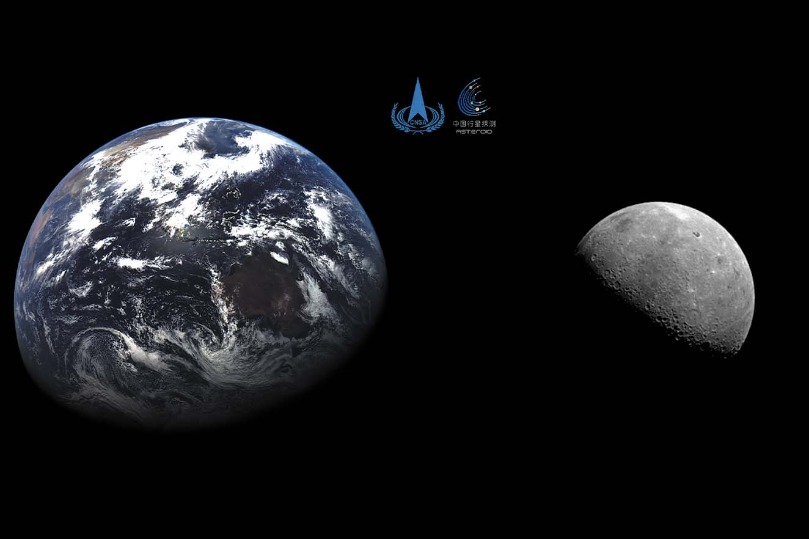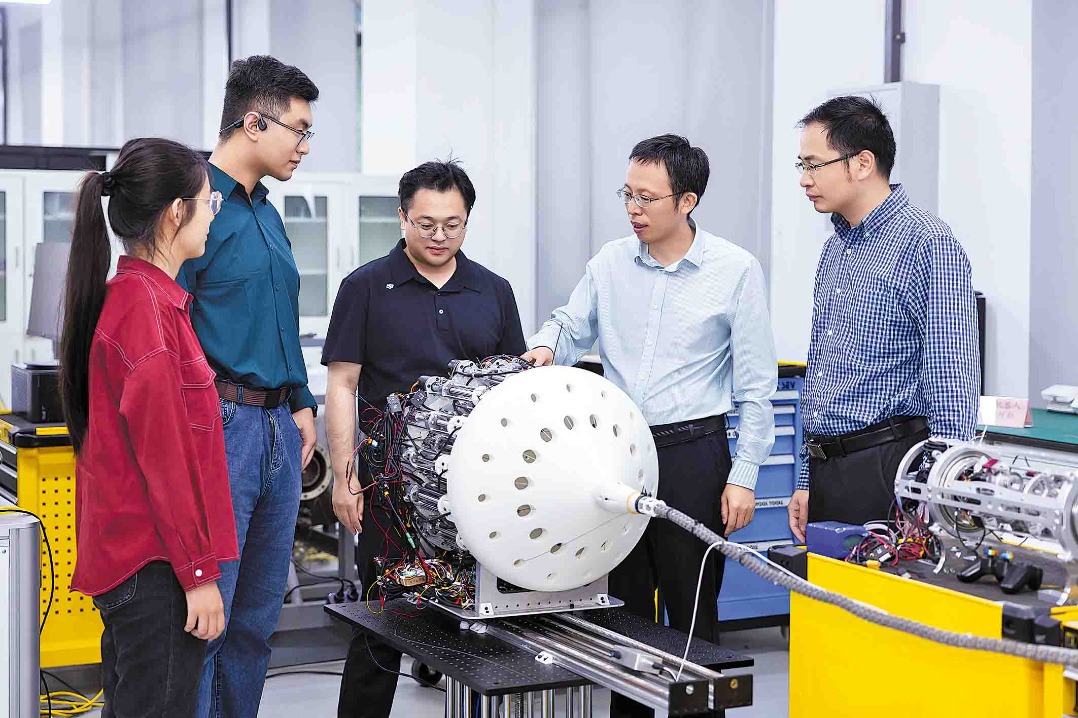The sea a bridge and bond between China and Europe

Ladies and Gentlemen,
Good afternoon. On behalf of the co-host, the National Institute for South China Sea Studies (NISCSS), I would like to welcome you to the second China-EU Experts' Meeting on Maritime Security. I would like to thank the EU Delegation to China for their excellent organization and support of this dialogue.

Dr Wu Shicun, President of the National Institute for South China Sea Studies, remarks at the opening ceremony of the second China-EU Experts' Meeting on Maritime Security in Beijing on 26 May, 2021.
After the first China-EU Experts' Meeting on Maritime Security was successfully held in Haikou in October 2019, the two sides agreed to find time to hold the second meeting. We are glad to see that it comes true today after overcoming various difficulties, demonstrating the commitment of both the Chinese and European sides to exchanges in the maritime field. The second dialogue comes a little bit later than expected, but still at the right time.
After the first dialogue, the outbreak and global spread of Covid-19 has brought profound changes to the world. At the same time, unilateralism and protectionism are notably on the rise. Geopolitical competition and ideological confrontation reminiscent of the Cold War are coming back. These negative factors, compounded by Covid-19, have posed brand new and grave challenges to countries around the world in exercising collective wisdom, upholding universal security and ensuring common prosperity. As two strategic forces in the world, China and Europe need to make positive contribution to maintaining multilateralism and addressing global challenges. Over the past year, China and the EU have kept close communication at all levels and made further progress in their relations, in particular, the signing of the China-EU Geographical Indications Agreement and the conclusion of the negotiations on the China-EU bilateral investment treaty as scheduled (though new difficulties come up now). This will not only help boost the prospects for all-round development of China-EU relations, but the recovery of the world economy and the healthy development of globalization.
It goes without saying that in the waves of de-globalization China-EU relations have also encountered some difficulties. Negative perceptions of China is growing within Europe, as marked by the EU's definition of China as a "systemic rival" in its recent policy paper on China. Such an ideological and dark view of China is preventing Europe from formulating an objective perception and rational interpretation of China's domestic and foreign policies. The series of moves and actions taken by the EU and some European countries on issues related to China's internal affairs, such as Xinjiang and Hong Kong, have had a negative impact on China-EU relations.
The sea serves as a bridge and bond between China and Europe in their economic and people-to-people exchanges. The consensus between China and Europe in the maritime field far outweighs their differences, which was reinforced in my mind thanks to the consensus and outcomes reached in our first dialogue.
Our meeting this time will focus on the Indian Ocean and South China Sea, and also touch upon the concept of "Indo-Pacific". We take note that the EU recently announced its strategy for cooperation in the Indo-Pacific, which, among other, covers maritime governance and maritime security. From my personal perspective, this strategy, in essence, aims to step up cooperation with countries around the Indian and Pacific Oceans in order to expand the EU's global influence. We look forward to further interpretations of this strategy by European participants. I believe there are many issues that need to be clarified and discussed.
The South China Sea is a marginal sea in the Western Pacific, connecting the Indian and Pacific Oceans. As a littoral state of the South China Sea, China has not only a direct and immediate stake in the peace, stability and security of the South China Sea, but also a wide range of interests in the Pacific and Indian Oceans. Maintaining maritime security, traditional or non-traditional, in these areas, is in China's immediate and long-term interests. The South China Sea issue, in essence, is the disputes on territorial sovereignty and maritime jurisdiction between China and the relevant claimant countries over some of the islands and reefs in the Nansha Islands, involving more islands and reefs and covering broader contested waters than any disputes elsewhere in the world. To build a peaceful and stable security environment in the South China Sea calls for resolution of disputes through negotiations and consultations as well as management of differences by the countries directly concerned; for a regional order built by China and ASEAN countries through implementation of the Declaration on the Conduct of Parties in the South China Sea (DOC) and the formulation of the Code of Conduct in the South China Sea (COC); and for progress in practical maritime cooperation among countries in this region in line with the principle of regional multilateralism.
At present, with stability that is both relative and fragile, the South China Sea is at a crossroads towards either more stability or turbulence. In my view, this is inextricably linked to the United States who has abandoned its "neutral" policy towards the South China Sea, leveraged the South China Sea issue to strengthen its military deployment in the Western Pacific, and tried to contain China through this issue. At the same time, we also take note that the EU and some European countries have increased their involvement and intervention in the South China Sea in recent years by diplomatic notes or statements as well as military activities, with China as the main target. This has added complexity to the landscape in the South China Sea and a new variable to China-EU relations. Of course, this may come out of EU's own geo-strategic considerations and interests, but we cannot exclude the possibility that this resulted from misunderstanding and misinterpretation of some issues. We are willing to have in-depth discussion with our European colleagues on those issues. No one can benefit from a volatile South China Sea. The agenda of the South China Sea region should not be defined by geopolitical game. We look forward to EU's more objective, rational and constructive policies and actions in the future, for three reasons. First, it will be conducive to upholding unimpeded navigation in the sea-lanes of the South China Sea, and to cooperation between China, Europe and other major economies for world economic recovery in the post-Covid era. Second, it will help strengthen China's positive perception of the EU's adherence to strategic autonomy in international affairs. Third, it will not bring additional challenges to China-EU relations already confronted with complex challenges.
In terms of agenda setting this time, compared to the first dialogue, we will focus on cooperation and encounter more differences, with inevitably more arguments or disagreements. But I believe that such exchanges will surely be beneficial and constructive. I would also like to reiterate that the NISCSS stands ready to continue to play the role of a bridge and platform by establishing a track-2 or track-1.5 dialogue mechanism with its European counterparts, so that there will be a new and regular channel for communication and exchanges between China and Europe on maritime matters. I also believe that in the field of maritime governance, as in many other fields, mutual trust and cooperation between China and Europe will prevail. The two sides will surely implement the consensus they reached on the Declaration on the establishment of a Blue Partnership for the Oceans and write a new chapter for China-EU cooperation in the maritime field.
In conclusion, I wish this dialogue a complete success. Thank you.
This article is the remarks at the opening ceremony of the second China-EU Experts' Meeting on Maritime Security in Beijing.



































